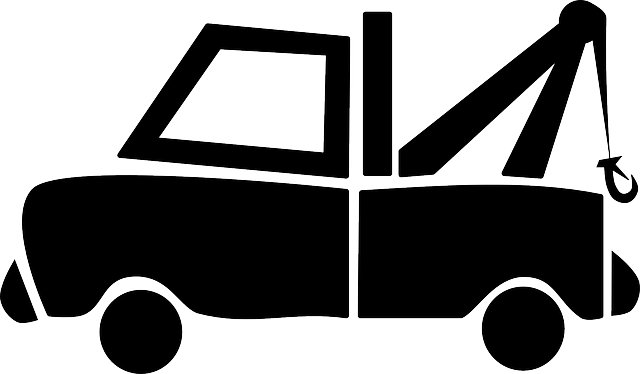Commercial vehicle operators and their employers often face a significant gap in coverage for non-trucking activities. Traditional liability policies only cover on-duty operations, not personal trips or local hauls unrelated to business. Non-trucking liability insurance, like bobtail insurance, fills this void by providing tailored liability coverage for off-duty truckers, protecting both drivers and companies from potential risks and legal liabilities arising from non-business uses. Affordable non-trucking policies offer cost-effective solutions for independent driver protection outside regular trucking duties.
In today’s digital era, understanding non-trucking liability for drivers is crucial. While primary liability policies offer essential protection during work hours, they often leave significant gaps when drivers are off duty or engaged in non-business activities. This article explores practical solutions like bobtail insurance coverage—a key gap filler for off-duty truckers. We also delve into cost-effective options for off-duty and non-business use, tailored liability coverage for independent drivers, and protection beyond standard policies.
Understanding Non-Trucking Liability for Drivers: When Primary Policies Fall Short

Many commercial vehicle operators and their employers often face a critical gap in coverage when it comes to non-trucking activities. While primary liability policies are designed for on-duty operations, they typically do not extend to scenarios where drivers engage in non-business uses, such as personal trips or local hauls unrelated to their employer’s operations. This is where non-trucking liability for drivers becomes essential.
Understanding the need for bobtail insurance coverage or off-duty truck insurance is crucial for ensuring independent driver protection. Affordable non-trucking policies offer tailored liability coverage specifically designed for these situations, providing cost-effective solutions. Such options protect drivers and companies from potential risks and legal liabilities arising from accidents occurring while the vehicle is not engaged in business activities, thus filling a critical void left by standard primary policies.
Bobtail Insurance Coverage: A Key Gap Filler for Off-Duty Truckers

Bobtail Insurance Coverage serves as a vital gap filler for off-duty truckers seeking comprehensive protection beyond their primary liability policies. This specialized type of coverage is designed to address non-trucking liability specifically for drivers who operate their vehicles outside regular work hours or in non-business contexts. By purchasing bobtail insurance, independent drivers can gain tailored liability coverage that extends beyond the typical scope of their primary policy.
Off-duty truckers often face unique risks when using their vehicles for personal or recreational purposes, and traditional non-business use insurance may not offer sufficient protection. Bobtail policies are crafted to bridge this gap, providing cost-effective liability options that protect drivers from potential claims arising from accidents occurring during non-work related activities. With affordable premiums, these tailored policies ensure independent truckers have the peace of mind knowing they’re protected, even when their vehicle is being used outside of their official job responsibilities.
Off-Duty and Non-Business Use: Exploring Affordable Insurance Options

For many truck drivers, understanding insurance coverage while off-duty or engaged in non-business activities can be a challenge. Traditional primary liability policies often leave gaps in protection during these periods. This is where specialized insurance options like non-trucking liability for drivers and bobtail insurance coverage play a crucial role. Such tailored plans are designed to bridge the gap, offering affordable non-business use insurance that provides independent driver protection.
These cost-effective liability options cater specifically to the unique needs of truckers who may face unexpected situations away from their official trucking duties. By opting for these tailored policies, drivers can ensure they have comprehensive coverage, protecting themselves financially in case of accidents or liabilities arising during off-duty activities.
Tailored Liability Coverage for Independent Drivers: Protecting Yourself Beyond the Policy

Many independent drivers operating their vehicles for personal or non-business purposes face a significant gap in their coverage when they’re not behind the wheel of a truck. Traditional primary liability policies typically don’t extend to protect against risks incurred while the vehicle is off-duty or used for personal reasons. This is where tailored liability coverage steps in as a crucial safety net, offering specific insurance options designed for independent drivers engaged in non-trucking activities.
Bobtail insurance coverage, also known as non-trucking liability for drivers, provides affordable and cost-effective solutions to bridge this gap. It’s specifically crafted for situations when the driver is using their personal vehicle for non-business purposes, such as commuting or running errands. This tailored protection ensures that even if an accident occurs during these off-duty periods, the independent driver is covered, safeguarding them from potential financial burdens and offering peace of mind.
In addressing gaps in primary liability policies, especially concerning non-trucking activities and off-duty use, various customized insurance solutions are available. Bobtail insurance offers a vital safety net for truckers not on the road, while tailored liability coverage ensures independent drivers are protected beyond their standard policy limits. For those engaged in non-business activities, cost-effective options like affordable non-trucking policies can provide comprehensive protection, ensuring peace of mind and mitigating potential risks. By understanding these specialized coverage areas, drivers can navigate off-duty scenarios with enhanced security, knowing they have the right insurance to fill any gaps in their primary liability plans.
